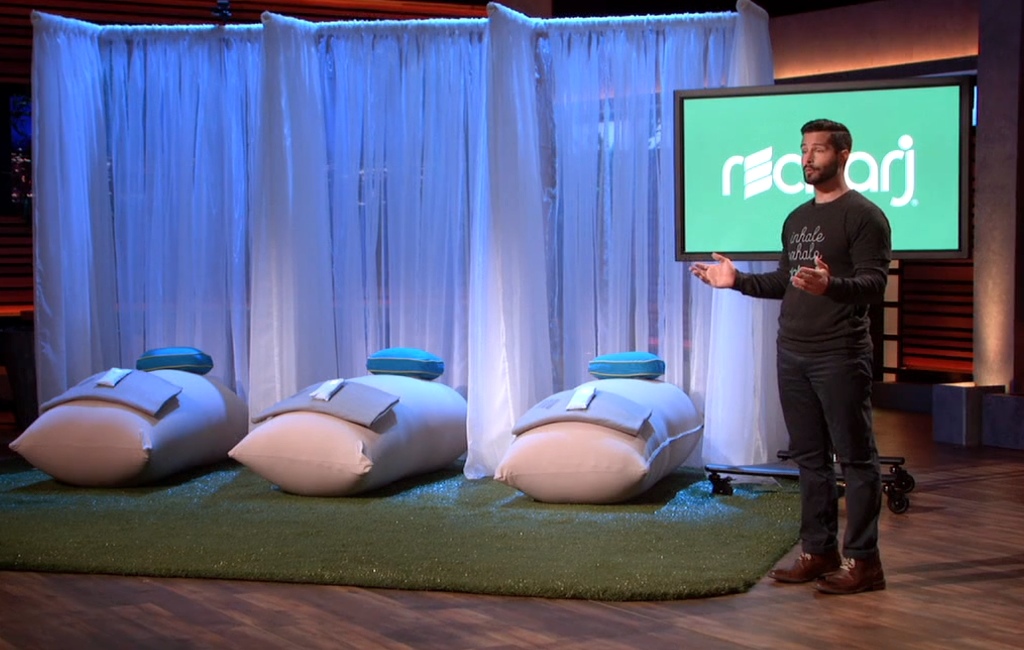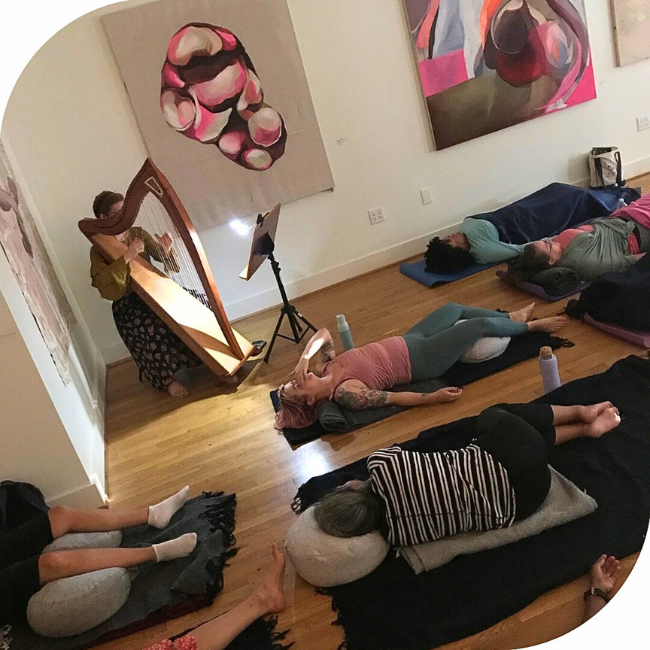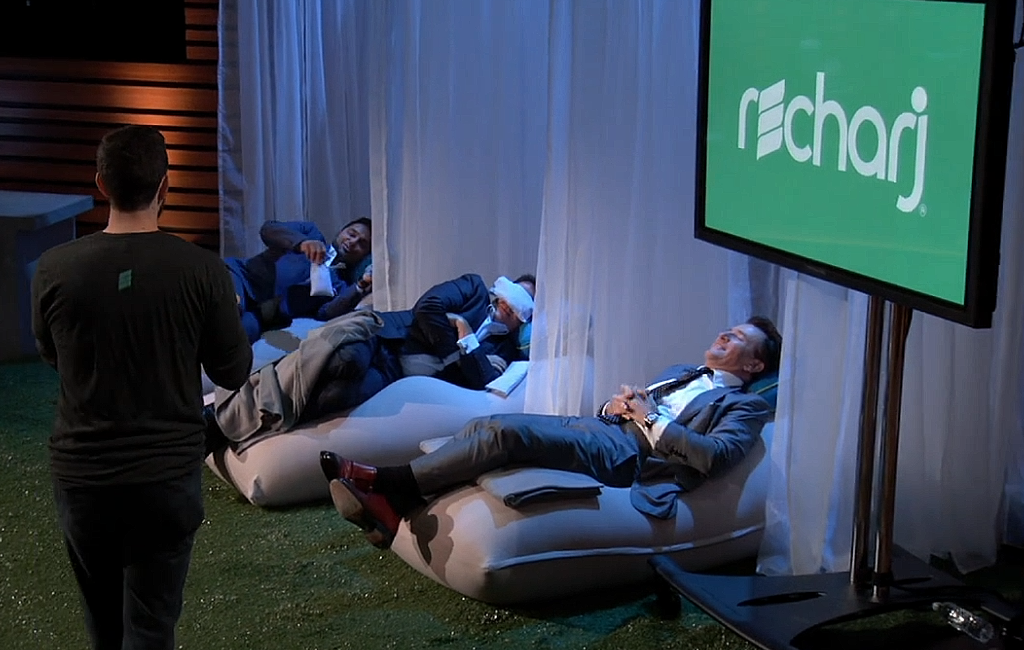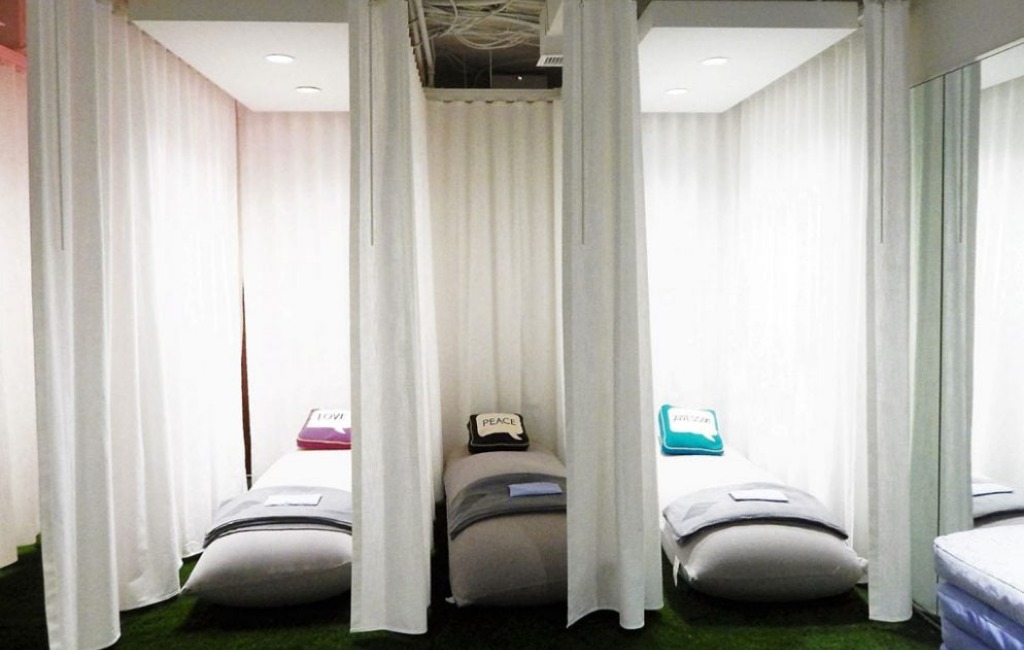Recharj – Meditation and Power Nap Studio

NO DEAL
EPISODE SUMMARY
🕓 Air Date: January 7, 2018
Asking For:
$75,000 for 15%
Investor:
No Deal
Deal:
No Deal
PRODUCT SUMMARY
Recharj is the nation's first and only power nap studio, providing a dedicated space for busy businesspeople to recharge their minds and bodies with short, rejuvenating naps.
WATCH HERE
IN A RUSH?
Click these to jump to the section you want to read.
Background Story
Daniel Turissini, the founder of Recharj, hails from Washington, D.C. His pitch revolves around addressing the burnout risk faced by high-value talent in demanding jobs. The idea for Recharj stemmed from the challenge of finding a suitable, cost-effective space for employees to take power naps during the day.

Turissini, recognizing the benefits of power naps as performance enhancers, decided to create a dedicated power nap studio for professionals. With a background in design and development, he invested $90,000 in creating the flagship studio and an additional $50,000 in operating expenses. The venture secured a small business loan of $158,000.
The Product
Recharj offers a unique solution for individuals seeking a quick and effective way to recharge during a busy workday. The power nap studio provides a comfortable environment with specialized power nap cocoons.
These cocoons are equipped with pillows, eye pillows, blankets, and optional earplugs. The space is designed for privacy, featuring sound-dampening opaque drapery that wraps around the cocoons. The ambiance is enhanced with binaural beach sounds and a lavender scent to engage multiple senses.
Customers can either drop in or book their power nap sessions online. The power naps last for 25 minutes, providing a short but effective break for individuals looking to recharge. The studio also incorporates restorative and regenerative practices beyond power naps, focusing on sleep, stress reduction, and mindfulness.
Recharj positions itself not only as a studio but also as a venue for corporate events, with plans to franchise the concept within two to three years. The cost for a power nap session is $9, making it an accessible option for professionals seeking a quick break during their hectic workdays. The company emphasizes cleanliness, with hand-touched materials being machine washable and cocoon covers cleaned between each use.

How It Went
The company’s position before Shark Tank
Recharj, as a studio concept, operates as a short-term loss leader or break-even venture to leverage its prime location in the central business district of Washington, D.C. The founder has invested a total of $300,000 in the business, including design, development, and operating expenses. The flagship studio has a capacity of 12 to 13 power nap cocoons in an 800 to 1,000 square feet space. Recharj plans to break even by the end of the calendar year, with projected top-line revenue of $130,000.

The founder, Daniel Turissini, has not taken a salary, maintaining his full-time job while hiring a subject matter expert to manage day-to-day operations. The studio has a network of 40 part-time instructors for classes and events. The business model currently focuses on serving as a short-term loss leader to build brand awareness and location leverage. Recharj has secured a small business loan with a 6.25% interest rate over a 60-month term. The company’s strategy involves franchising within the next two to three years.
The Negotiations:
The negotiation process on Shark Tank did not result in a deal for Recharj. Daniel Turissini sought $75,000 for a 15% equity stake in the company. The sharks expressed concerns about the business model’s sustainability and profitability. While the founder argued that Recharj serves as a short-term loss leader, the sharks pressed for clearer financials. The total investment in the business was revealed to be around $300,000, with a small business loan of $158,000 at a 6.25% interest rate.

The sharks were skeptical about the company’s ability to break even, with Mark Cuban expressing confusion and ultimately deciding to opt out. Barbara Corcoran, Lori Greiner, Rohan Oza, and Robert Herjavec also chose not to invest, citing concerns about the business model, investment cost, and the overall viability of the concept. Despite the lack of a deal, Daniel Turissini remained optimistic about the future of Recharj. The sharks, while acknowledging the concept’s potential, raised doubts about the scalability and financial sustainability of the power nap studio.







